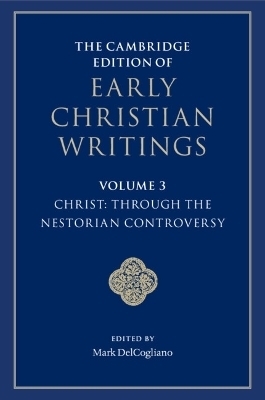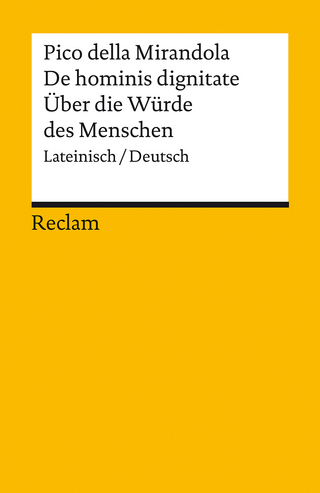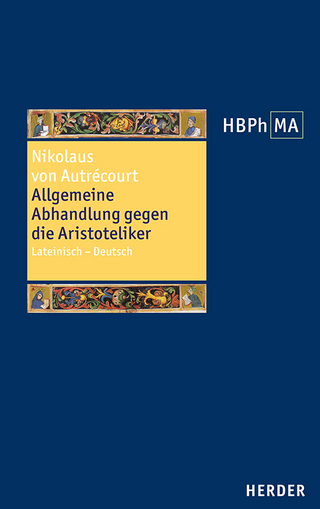
The Cambridge Edition of Early Christian Writings: Volume 3, Christ: Through the Nestorian Controversy
Cambridge University Press (Verlag)
978-1-107-69332-6 (ISBN)
The Cambridge Edition of Early Christian Writings provides the definitive anthology of early Christian texts from ca. 100 CE to ca. 650 CE. Its volumes reflect the cultural, intellectual, and linguistic diversity of early Christianity, and are organized thematically on the topics of God, Practice, Christ, Community, Reading, and Creation. The series expands the pool of source material to include not only Greek and Latin writings, but also Syriac and Coptic texts. Additionally, the series rejects a theologically normative view by juxtaposing texts that were important in antiquity but later deemed 'heretical' with orthodox texts. The translations are accompanied by introductions, notes, suggestions for further reading, and scriptural indices. The third volume focuses on early Christian reflection on Christ as God incarnate from the first century to ca. 450 CE. It will be an invaluable resource for students and academic researchers in early Christian studies, history of Christianity, theology and religious studies, and late antique Roman history.
Mark DelCogliano is Associate Professor of Theology at the University of St. Thomas, Minnesota. He is the author of Basil of Caesarea's Anti-Eunomian Theory of Names (2010), and has published numerous journal articles as well as translations of Basil of Caesarea, Athanasius of Alexandria, Didymus the Blind, Gregory of Nyssa, and Gregory the Great.
Notes on contributors; Acknowledgments; Note on the texts and translations; Abbreviations; Series introduction; Introduction; Part I. The Beginnings of Christology: 1. Acension of Isaiah 6-11 (Ethiopic version); 2. The Gospel of Peter; 3. The Epistle of the Apostles; 4. The First Letter of Clement (selections); 5. Ignatius of Antioch, Letters (selections); 6. Epistle to Diognetus 1 and 7-12; 7. Justin Martyr, First Apology 23, 30-32, 46, 63 and Second Apology 10, 13; 8. Tatian, Address to the Greeks 4-7; 9. Odes of Solomon 7, 19, 41, and 42; 10. Treatise on Resurrection; 11. A Ptolemaic Theology as Recounted by Irenaeus of Lyons in Against Heresies 1.8.5; 12. Irenaeus of Lyons, Against Heresies (selections); Part II. Developing Christological Traditions: 13. Tertullian of Carthage, Apology 21; 14. Tertullian of Carthage, On the Flesh of Christ 1-16 and 24-25; 15. Tertullian of Carthage, Against Praxeas 1-4 and 27-30; 16. Origen of Alexandria, On First Principles 2.6; 17. Paul of Samosata, Selected Fragments; 18. Aphrahat, Demonstration 17: On the Son; 19. Hilary of Poitiers, On the Trinity 9.1-14; 20. Ephrem the Syrian, Hymns on Faith 4, 10, 24, 31, 36, 51, 54, 77, 78, and 79; Part III. Traditions of Pro-Nicene Christology: 21. Tome to the Antiochenes 7; 22. Athanasius of Alexandria, Christological Letters to Epictetus, Adelphius, and Maximus; 23. Apollinarius of Laodicea, Recapitulation; 24. Apollinarius of Laodicea, Selected Letters; 25. Apollinarius of Laodicea, On the Faith and the Incarnation; 26. Apollinarius of Laodicea, On the Body's Unity with the Divinity in Christ; 27. Apollinarius of Laodicea, Fragments of Other Writings; 28. Apollinarius of Laodicea, Fragmentary Writings against Diodore and Flavian; 29. Basil of Caesarea, Letters 261 and 262; 30. Basil of Caesarea, Homily on the Holy Birth of Christ; 31. Diodore of Tarsus, Selected Fragments; 32. Gregory of Nazianzus, Letter 101 to Cledonius; 33. Gregory of Nazianzus, Poems 1.1.10-11; 34. Gregory of Nyssa, Oration on the Savior's Nativity; 35. Theodore of Mopsuestia, On the Incarnation (fragments); 36. Augustine of Hippo, On Eighty-Three Different Questions. Number 80: Against the Apollinarians; 37. Augustine of Hippo, Letter 137; 38. The Leporius Dossier: Leporius, Statement of Amendment; Augustine of Hippo, Letter 219; John Cassian, On the Incarnation of the Lord, Book 1; 39. Theodoret of Cyrrhus, Exposition of the Orthodox Faith; Part IV. Controversy over Nestorius: 40. Eusebius of Dorylaeum, Protest; 41. Cyril of Alexandria, Second Letter to Nestorius; 42. Nestorius of Constantinople, Second Letter to Cyril; 43. Proclus of Constantinople, Homily on the Holy Virgin Theotokos; 44. Nestorius of Constantinople, Three Letters to Celestine of Rome; 45. John Cassian, On the Incarnation of the Lord against Nestorius 3.1-16 and 5.1-4; 46. Cyril of Alexandria, Third Letter to Nestorius; 47. Nestorius of Constantinople, Letter to John of Antioch; 48. Theodoret of Cyrrhus, Refutation of the Twelve Anathemas; 49. Acts of the Council of Ephesus (June–October, 431): Selected Proceedings; 50. Cyril of Alexandria, Letter of Reunion to John of Antioch; 51. Ibas of Edessa, Letter to Mari the Persian; 52. Cyril of Alexandria, First Letter to Succensus; 53. Cyril of Alexandria, Second Letter to Succensus; 54. Theodoret of Cyrrhus, Eranistes: Epilogue; Suggestions for further reading; Scriptural index.
| Erscheinungsdatum | 31.08.2024 |
|---|---|
| Reihe/Serie | The Cambridge Edition of Early Christian Writings |
| Verlagsort | Cambridge |
| Sprache | englisch |
| Maße | 152 x 229 mm |
| Gewicht | 1174 g |
| Themenwelt | Geisteswissenschaften ► Philosophie ► Philosophie des Mittelalters |
| Geisteswissenschaften ► Religion / Theologie | |
| ISBN-10 | 1-107-69332-2 / 1107693322 |
| ISBN-13 | 978-1-107-69332-6 / 9781107693326 |
| Zustand | Neuware |
| Haben Sie eine Frage zum Produkt? |
aus dem Bereich


